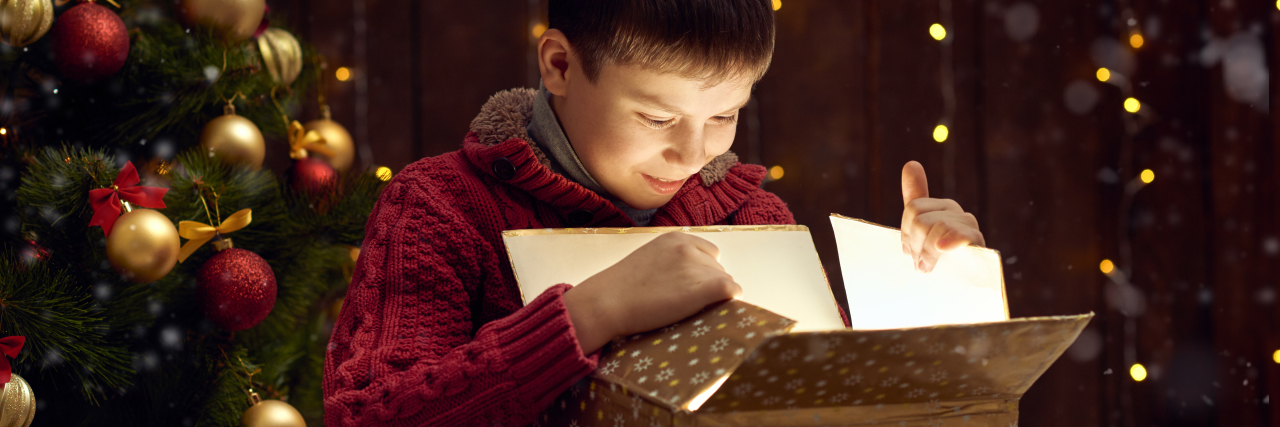Last January, as my husband and I were boxing up the seasonal decor, I noticed him toss in our son’s favorite holiday movies. “Not so fast.” I barely got the words out before the box was taped shut. All year my husband looks forward to breaking those movies out in December. He was hoping to pass this tradition on to our son. However, this is one winter ritual we won’t be continuing, and here is why.
My son is 4-and-a-half years old and has ADHD and autism. Last year the holidays were tough. Halloween was especially confusing for him. He didn’t want to wear a costume. He had no idea what trick-or-treating was. When someone rang the doorbell, he expected they were coming in to play with him. Then when he’d see their costumes, he’d get scared.
Come December, he was completely overwhelmed by the tree and decorations. He didn’t know why that elf kept moving all over the house. He was terrified of Santa. On the big day, he had one of his worst meltdowns ever during a family gathering.
I realized I needed to do things much differently. I needed to proactively prepare him for the holidays, so he knew what to expect. Luckily, I had a few ideas.
For one, I made two bins — one for Halloween toys and one for Christmas toys. In the Halloween bin, I put toy ghosts, witches, jack-o-lanterns, and more. In the Christmas bin were items such as the characters from “Rudolph,” a small present, and golden tickets from the “Polar Express” movie. I pulled the bins out throughout the year, and we talked about the holidays while we played with the toys.
We also frequently watched movies, sang songs, and read books about Halloween and Christmas. During play, we dressed in costumes and pretended to trick-or-treat. And I believe over the last year we’ve made at least a hundred Play-Doh snowmen!
The results thus far have been pretty stellar. Halloween was last week, and he did great! “Blues Clues” has been a recent favorite show, so he dressed as Steve. Of course, he wore the costume multiple times before the big day. Unlike last year, he was excited to walk the neighborhood and see all the kids’ costumes. And he knocked on each door and said “trick-or-treat” like he’d been practicing all year — because he had!
I can’t report on Christmas yet because it is only the beginning of November, but we had a great time this morning watching and acting out “The Polar Express.” He is always the main character, and I get to be Billy. We have the most fun singing and dancing during the Hot Chocolate song. We will be going on a “Polar Express”-themed train in a couple of weeks. I am confident by the time Christmas arrives, he’ll be more than prepared!
For most kids, saving the magic until the moment works well. You can build anticipation and excitement and then enjoy their reaction. But for kids with developmental disabilities, that often won’t work. Surprises, disruptions in routines and new experiences can have a negative effect. By keeping the holiday magic alive year-round, they know what to expect and the experience is better for everyone!
And who doesn’t enjoy Christmas in July? Or like we do — every month of the year!
“Find out what works, and do more of that.” – Steve de Shazer
Getty image by Soleg.

